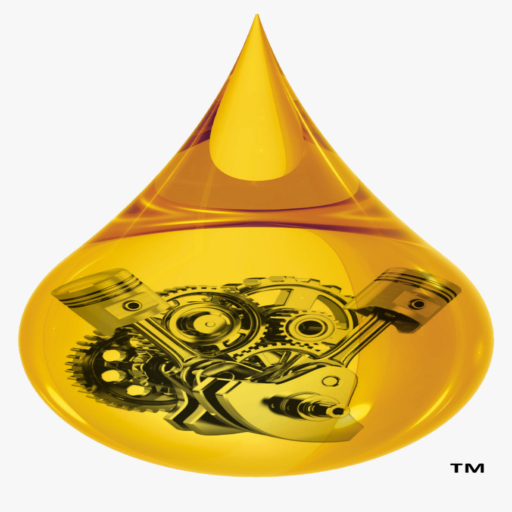Oil Type For 2003 Toyota Camry: Maintaining the engine of your Toyota Camry 2003 properly lubricated will ensure its performance and long-term health. You should change your Camry’s oil and filter regularly to ensure its long-term health.
In this post, I’ll go over everything you need to know about changing the oil in your 2003 Toyota Camry.
Below is a short overview of our topics:
- Oil: 5W-20 is the recommended oil for a Toyota Camry from 2003. Synthetic oils perform better in extreme temperatures than conventional oils.
- Oil tank capacity: A 2003 Toyota Camry can hold 4.5 quarts of oil. Make sure not to overfill the oil container, as this may damage the engine.
- Filter: Toyota recommends Toyota’s 90915-YZZF1 as an oil filter for its 2003 Camry. This oil filter is designed to catch dirt and other debris.
- Cost for oil change: Depending on where you get it done, the cost of an oil change in a Toyota Camry from 2003 can vary. You can expect a price of $30 to $50 for an oleo change and a filter replacement.

oil for the 2003 Toyota Camry
The recommended type of oil for a 2003 Toyota Camry is 5W-30. It’s essential to use quality oil that meets the specifications set forth in the manual for owners to ensure maximum engine performance and long-term durability.
It is also recommended to replace the oil at least every 5k miles or 6 months, or when it’s the first, in order to ensure the health of the engine.
2003 Toyota Camry oil capacity
The capacity of the oil in the 2003 Toyota Camry is 4.5 quarts (or 4.3 Liters) after a filter change. It is important not to overfill an engine since it could result in damage.
Always consult the owner’s manual or consult an expert mechanic for specific guidelines and suggestions for keeping your car’s engine in good condition.
2003 Toyota Camry oil filter
The Toyota Camry has a spin-on filter that has dimensions of 3 inches and a thread diameter that ranges from 3/4-16 inches. The most commonly used oil filter used in the model year 2003 Toyota Camry is the Fram PH8A that is a premium filter which is specifically designed to shield the engine from harmful pollutants.
Below are some most highly-rated oils filters that are compatible with the 2003 Toyota Camry:
- Fram PH8A
- Mobil 1 M1-102A
- Wix 51334
- K&N HP-1006
- Toyota 90915-YZZF1
2003 Toyota Camry Oil Change
The process of changing the oil in the engine in a Toyota Camry is a simple procedure that can be completed at home. These are the steps to follow:
- Check that the engine is cooling and the car is in a level area.
- Find the drain plug for oil beneath the vehicle then place the oil pan under it.
- Take off the drain plug for oil to let the oil run out.
- Take off the oil filter with the wrench for oil filters.
- Install a new filter and make sure it is tight by hand.
- Replace the drain plug for oil and tighten it with a wrench.
- Make sure to add new oil to the engine with a funnel.
- Verify the level of oil with the dipstick, and add additional oil if necessary.
People Also Search oil type for the 2003 Toyota Camry
| oil capacity 2003 Camry 2.4 |
| 2003 Toyota Camry oil capacity |
| the best oil for Toyota Camry |
| Toyota Camry 2003 oil filter |
| oil filter for Camry 2003 |
| oil for a 2003 Toyota Camry |
| 2009 Toyota Camry recommended oil |
| 2010 Toyota Camry recommended oil |
Conclusion
Selecting the correct oil to use on your 2003 Toyota Camry is important to keep the durability and performance that your vehicle. Based on our findings we suggest using 5W-30 synthetic blend oil to get the most effective results.
It is also essential to replace your oil frequently and in accordance with the recommendations of the manufacturer.
By following these procedures and using the proper oil, you will be able to keep your 2003 Toyota Camry operating smoothly for many years.
For more posts visit our website: https://engineoiil-capacity.com/
FAQ oil type for 2003 Toyota Camry
What kind of oil does a 2003 Toyota Camry take?
Toyota Camry 2003, 8100 Eco-Nergy™ SAE 5W-30 Full Synthetic Motor Oil, by Motul USA®. This product is made of high-quality components to meet and exceed strict quality requirements. Designed using state-of-the-art technology and with…
How to change the oil in a Toyota Camry?
Changing the oil in a Toyota Camry is easy and can be done by anyone with even a moderate mechanical sense. The whole process takes about 20-30 minutes, and most of the time is spent waiting for the used oil to drain out of the car! All you’ll need is a 14mm socket, funnel, oil, a drain pan, and an oil filter. Changing Oil in a Toyota Camry.
What is GF-5 oil for Toyota Camry?
ILSAC GF-5 oils are engineered to boost fuel efficiency and deliver outstanding performance, including protecting Toyota Camry engines from high-temperature deposits and preventing the formation of engine sludge.
What is the oil capacity of a 2018 Toyota Camry?
Toyota Camry Oil Capacity by Year Camry Oil Capacity (qts) 2019 4.8 5.7 2018 4.8 5.7 2017 4.6 6.4 2016 4.6 6.4 12 more rows …
What is the most recommended oil type for a 2003 Toyota Camry?
The recommended type of oil is 5W-30.
Do you recommend synthetic oil for the Toyota Camry in 2003? Toyota Camry?
Synthetic oil is not necessary, but it is possible to use it as a substitute for traditional oil.
